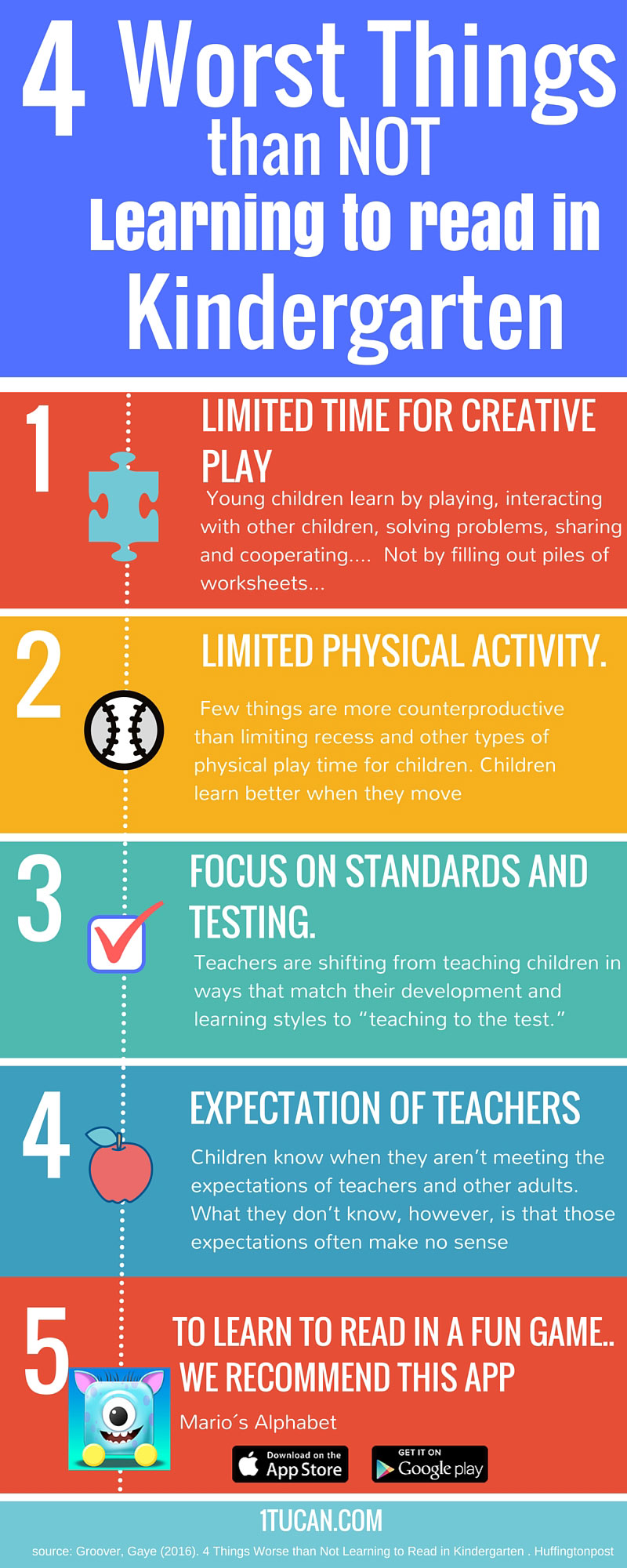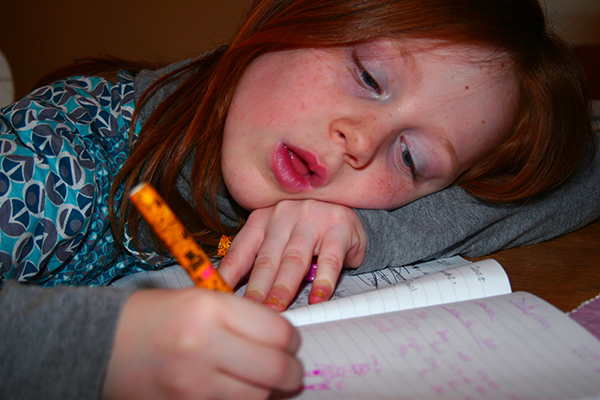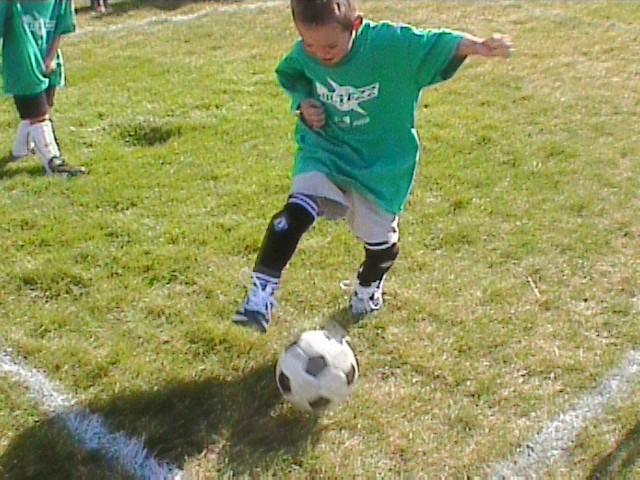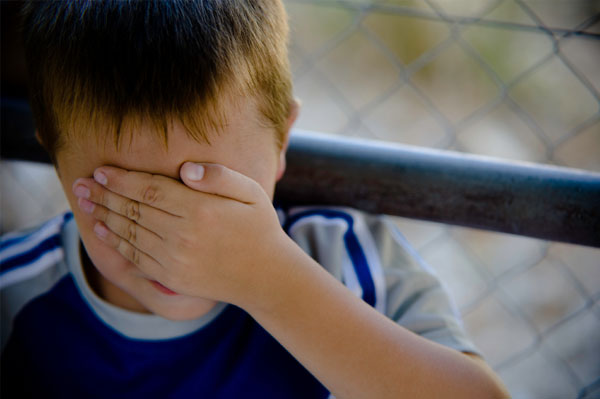
Learning to read is a fundamental skill, and a very important one which we all need in order to get an education and to succeed in later life; however, as with any other skills, not everyone learns in the same way, or at the same time.
Standards are now dictating that children ‘should’ learn to read in Kindergarten – but many educators believe that this puts children under pressure to learn skills which they are not ready to learn yet. In fact, many European countries, such as Finland, don’t expect children to learn to read until they’re in first grade – and the evidence suggests that this leads to better outcomes for the children, and less frustration for everyone involved.
So, to put your mind at ease, here are 4 things that are worse than not learning to read in Kindergarten:
-
Limited Time For Creative Play

According to a growing number of research studies, children learn far better when they are playing and being creative. They learn by building structures, by interacting with their peers, and by doing what comes naturally to them (obviously within reason!).
Most of us have heard of the Montessori method of teaching – which advocates exactly this kind of learning – and it is very popular and very successful.
And the best part? Children can play and learn at the same time – without the children even noticing!
By contrast, children don’t learn nearly as much, or as well, by filling in worksheet after worksheet.
2. Limited Time For Physical Activity
This is related to the above point: children learn by being creative, and they also learn by moving. It helps with cognitive development, which in turn helps with learning essential skills like reading.
Unfortunately, increasing pressure on kindergarten teachers to get children to a certain ‘standard’ means that schools are being forced to shorten recess or cut down on gym classes.
This might mean your child learns to read in Kindergarten, but then again, it might not – because teachers and parents alike know that active children learn better – but they are forced to ignore this intuitive evidence and focus disproportionately on academic achievement.
So, get active with your kids if you can, and know that reading will come.
3. Teaching That Focuses On Standards and Testing

Many teachers report that, over the last couple of decades, they have seen a huge shift in focus from teaching children in individualized ways and nurturing their individual learning styles, to concentrating on ‘scoring’ young children based on standardized assessments.
This might look good on school league tables, but is it really beneficial for our children? It seems not always. Children, as we’ve already said, have their own styles of learning, and the increasing pressure on teachers to meet standards means that, while *some* children might be learning to read in Kindergarten, teachers can’t put the time they would like into fostering a love of learning in children.
Often, this means that children’s enthusiasm waynes, and no child will want to learn if they ‘hate’ school.
Wouldn’t we prefer our children to be happy learngers, than eing forced to learn to read at a set time?
4. Frustration And a Sense of Failure
This relates to the point above: children are being expected to ‘conform’ more and more to standardized assessments, which tell them they ‘must’ be able to read by a certain age. So, it follows that if some children can’t meet these expectations, they become frustrated and feel like they’re failed.
Even very young children know that the adults around them have certain expectations of them. If these expectations are not appropriate, there is no way that they can meet them, leading to frustration on both sides, and often meaning that many children ‘hate schcool’ by the end of Kindergarten.
What if, instead of worrying about children ‘meeting expectations’, we could reassure our kids that they will learn skills like reading and math in their own time, in their own way? This would surely make for a much happier school, a much happier teacher, and most importantly, a much happier, more engaged child.
5. TO LEARN TO READ IN A FUN GAME..
WE RECOMMEND THIS APP
Mario Alphabet
So, in summary, if your child hasn’t mastered reading in Kindergarten, don’t panic – there are many things worse than that.
Source: Groover, Gaye (2016). 4 Things Worse than Not Learning to Read in Kindergarten . Huffingtonpost


